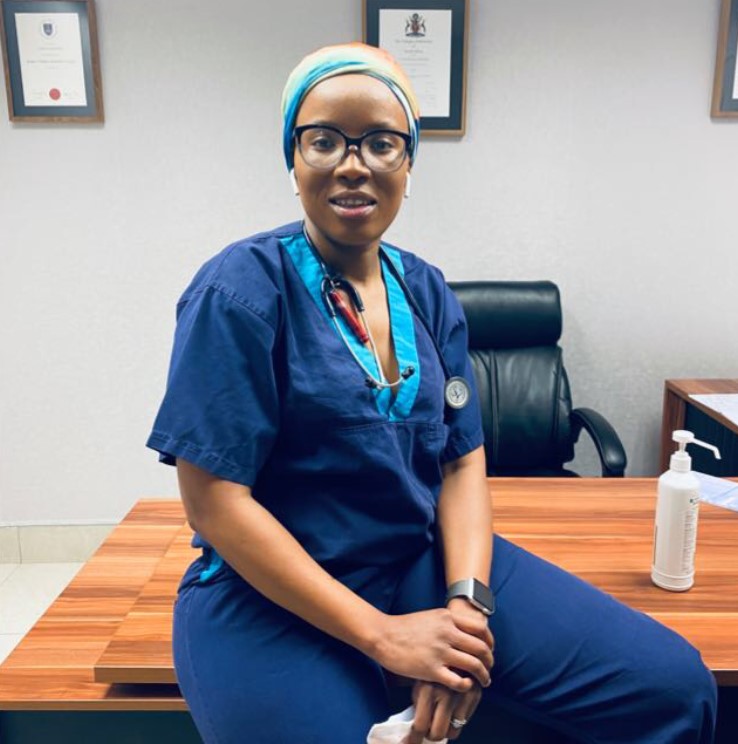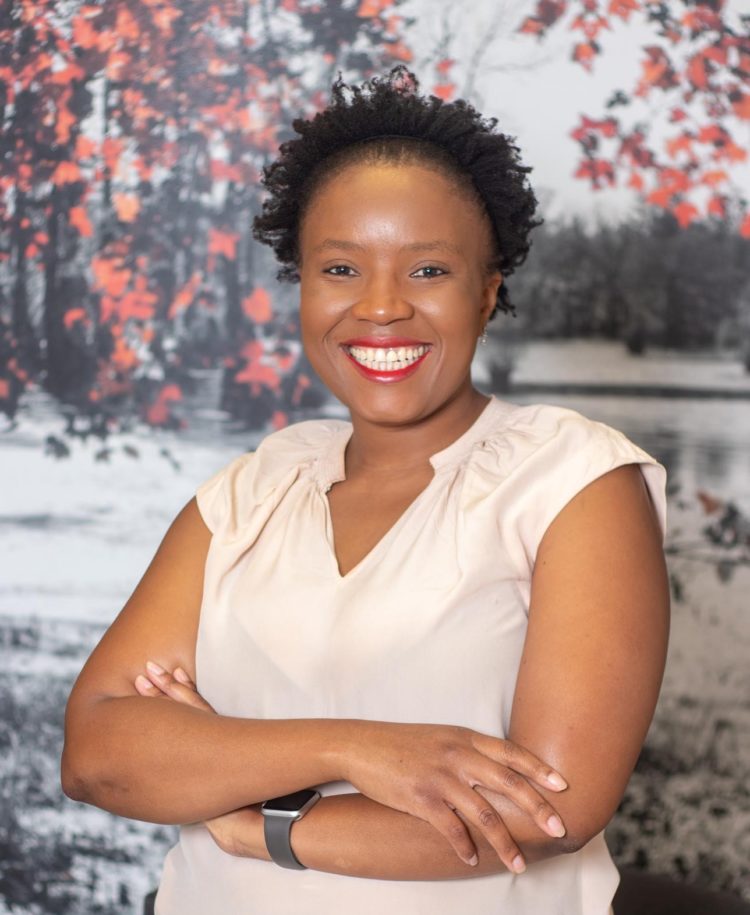Dr Coceka Mfundisi is one of the few black women neurosurgeons in South Africa. For our #Limitless series on women forging head in male-dominated industries, she tells us about the joys of her discipline and the need for better conditions in hospitals.
When I ask Dr Mfundisi to explain her specialization she jokes that she “cuts brains open for a living.” She’s one of only five black female neurosurgeons in South Africa and treats a range of brain and spine-related conditions.
In between heading her private practice in Johannesburg, she’s a strong advocate for better healthcare access and an active educator on social media, using her reach to enlighten followers about neurological disorders.
“I started sharing patient stories on Twitter so people know that brain surgery isn’t as intimidating as many people think,” she explains. “Neurological disorders can be treated and treated well.”
After completing her Bachelor of Medicine and Surgery from the University of Cape Town, she trained as a specialist neurosurgeon at the College of Medicine of South Africa and became the second black woman to register with the College of Neurosurgeons of South Africa.
Neurology first drew her in as a subject because it’s complex but it was a visit to the theatre at Groote Schuur Hospital to observe the removal of a tumour from a patient that sealed the deal. She recalls seeing the patient before and after the surgical procedure and being amazed by how much better they felt after a relatively short time.
I had to deal with microaggressions early in my career.
In a recent cover feature with Career’s Magazine, she opens up about working on the frontlines of the Covid-19 pandemic and how the virus has made her work more challenging. It exposed the disparities between the public and private healthcare system and amplified the plea of medical practitioners who’ve been sounding the alarm about poor infrastructure and a lack of resources in hospitals.
For Dr Mfundisi, the pandemic has meant thinking carefully about how to treat her patients without putting them and herself at risk during a time when most if not all hospital resources have been directed to fighting the virus.
Raised in rural Eastern Cape by her matriarch grandmother, she had to get used to being the only girl surrounded by boys. That’s partly why she’s undaunted by often being the only woman in professional situations. The other part is receiving consistent support from her family and colleagues.
That hasn’t spared her from having to confront sexist behaviour and utterances at work. “I had to deal with microaggressions early in my career when colleagues in the cafeteria would ask me to dish up for them and colleagues remarking that I’m disturbing workflow when I decided to start a family.”
Her long list of accolades include being a recipient of the Goldman Sachs Global Leadership award and sitting on the Fifth Medical of preliminary enquiry at the Health Professionals Council of South Africa. With a busy private practice and the intimidating job of operating on brain and spine injuries, it’s important to remain focused and confident.
Dr Mfundisi manges to achieve that by “unapologetically celebrating her wins.” It’s a habit that’s helped her confront imposter syndrome. “I’m deliberate about celebrating my progress especially when my patients are doing well. I’ve learnt to celebrate myself with every accomplishment and to do so intensely.”
With thanks to Africa No Filter who made this series possible.


